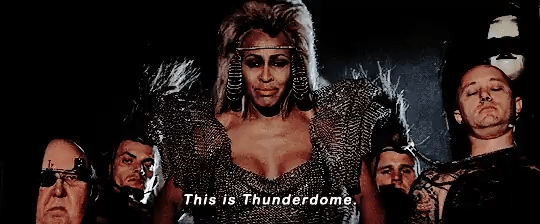Recently, there’s been a lot of buzz on twitter about the topic of cheating.
You know, that age-old drama that spices up every shitty soap opera and is the subject of those odd tiktok videos where some computer voice reads out a reddit post while a minecraft clip plays underneath (is that just me, is my algorithmn fucked???).
Anyways, even though infidelity has been around for eons, in the digital age, it’s received a facelift, and to society’s detriment, a lot of red pill idiots have propagated the notion that in some ways it’s “Based”.
What a load of HORSE SHIT.
It’s time we set the record straight, and clear up a lot of misconceptions on this controversial topic.
A Historical Perspective on Cheating
Back in the day cheating was a pretty black-and-white affair.
Maybe you had a secret “romance partner” with whom you exchanged love letters.
Maybe you hit up the local courtesan while your wife was tending to the goats.
Fundamentally, you either did the dirty deed, or you didn't.
Societies across the globe had their own rules about what constituted infidelity, and the consequences were often severe, ranging from public shaming to much worse, like stoning for example.
Even now, in some places in the “old world,” you still find remnants of these traditions, which goes to show how deep our disgust for infidelity goes.
Now, while it might seem like our ancestors had a straightforward approach to fidelity, the truth is, humans have always been pretty inventive when it comes to bending the rules.
Take a lot of the medieval love letters we romanticize, they weren’t always just innocently tucked away in some drawer. We’re talking about messages hidden in the most ingenious spots, like secret compartments in furniture or behind loose bricks in the fireplace.
And those secret meetings under the cover of darkness? They were organized with a level of detail that would put your average heist movie to shame. Lovers back then had to navigate a world with far fewer privacy options, using secret codes and signals, perhaps a specific tune hummed in a crowded market or a discreet handkerchief drop, to communicate.
This isn’t to say that cheating was any more noble or excusable back then; it’s just to point out that the urge to cheat and the efforts to conceal it have been a constant through history. It highlights a complicated part of human nature—the desire for something more, something secret, regardless of the potential fallout.
Cheating in the Digital Age
Fast forward to the modern day, and cheating has morphed into a beast of a different nature.
With the advent of smartphones, social media, and dating apps, the landscape of infidelity has expanded exponentially.
The digital age has introduced dozens of new ways to stray, from emotional affairs conducted entirely online to the ease of reconnecting with an old flame with just a few taps on a screen.
Welcome to the Thunderdome.
In this era, the lines between innocent friendship and something more can blur in the time it takes to send a text.
A "like" here, a heart emoji there—seemingly harmless interactions can snowball into full-blown affairs without either party ever physically meeting.
This digital dimension adds complexity to relationships, challenging our traditional understanding of fidelity.
The accessibility of potential partners makes temptation a constant companion, and the anonymity the internet offers can embolden even the most loyal of lovers to explore forbidden territories.
On top of that, the definition of cheating has become more nuanced. Emotional affairs, where one invests emotional and romantic energy into someone outside the relationship, often through digital means, are increasingly recognized as breaches of trust. These virtual rendezvous are sometimes even more involved than a simple business trip make-out sesh, when they eventually get discovered (they always do) they tend to be more heartbreaking than the simple one night stand.
Encrypted messaging apps, secret folders, and burner phones make concealing illicit activities easier than ever, but they also leave a digital paper trail that, when uncovered, can shatter trust irreparably.
In some ways, cheating was a lot more difficult in the past, particularly because it required a lot of physical effort to actually do it.
Nowadays, thanks to the marvels of technology, you’re literally just a few clicks away from pouring your entire life down the digital drain.
Drawing Lines
“But dude, it’s just a like on a photo, it’s not that big of a deal.”
It is, and it isn’t.
In some ways, sure, double-tapping your college crush’s Spring Break 2023 photos where her goodies are on display in one of those floss bikinis is not that crazy.
However, little actions like that erode your own personal boundaries on what is and isn’t okay to do in your relationship.
You start off liking a post here, you slide into some DMs there, and eventually you’re messaging ol’ Maddy about how “if you could go back in time,” and “maybe we should catch up at the next alumni weekend 😉.”
It’s a slippery slope, let’s not kid ourselves.
So what’s the right way of setting boundaries in this new landscape of digital infidelity.
The best thing I’ve come up with can be summarized in just a few words:
Don’t do anything you wouldn’t want your significant other to do behind your back.
Gotta love reciprocity.
Essentially, if you’re about to do something, and in the back of your mind you can say “it would upset me if she did this,” simply don’t do that thing.
This will save you personally in 99% of all cases, but if you really want to bulletproof your relationship, I suggest taking things one step further, and having a candid, honest conversation with your S.O. about what your expectations are in the relationship.
You could even discuss the principle above and outline between the both of you what is deemed “okay” and what is deemed to “cross the line.”
Note: what constitutes cheating for me may not constitute cheating for you. Not my place to judge wtf you do in the privacy of your home.
Keep reading with a 7-day free trial
Subscribe to Love and Lust to keep reading this post and get 7 days of free access to the full post archives.





